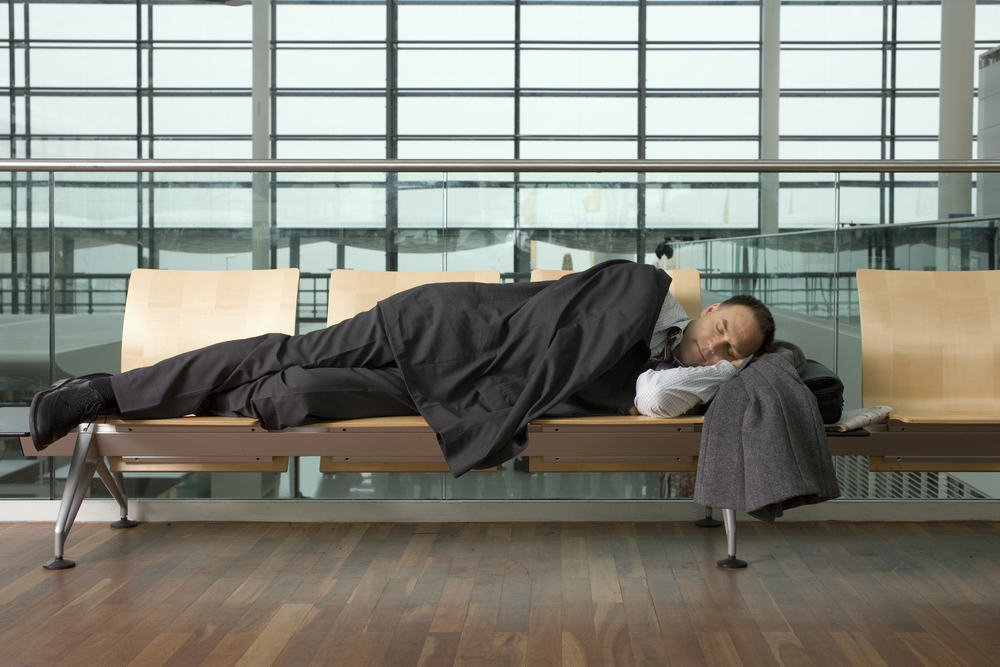Contents:
- Medical Video: How to avoid jet lag
- Why does jetlag happen?
- What are the symptoms of jet lag?
- What should I do if I experience jet lag?
- 1. Light therapy
- 2. Melatonin
- 3. Sleeping pills
- How do you prevent jet lag?
Medical Video: How to avoid jet lag
What is jet lag? Also known as a time zone syndrome or circadian desynchrony, jet lag is a disturbance caused by the movement between time zones that occur quickly. The further the difference in time zone and the faster the time of movement, the more severe the symptoms of jet lag you experience.
Why does jetlag happen?
The human body is regulated by a circadian rhythm, a rhythm that corresponds to the rotation of time in 24 hours. This rhythm is arranged in the hypothalamus, synchronized with the "dark-light cycle" so as to keep us awake during the day and fall asleep at night naturally. Circadian rhythms adapt slowly to changes in time zones, approximately 1 day for each time zone change of 1 hour when traveling east, and 1.5 hours when traveling west. As a result, when there is rapid displacement, the release of melatonin (a hormone that functions to signal the body to sleep or wake up) becomes incompatible with the "dark-light cycle".
A study in America states, jet lag occurs in 30 million people who travel through 5 time zones or more. Jet lag can occur at any age, although it is more common in children and the elderly.
What are the symptoms of jet lag?
The symptom of jet lag is influenced by how far a person crosses the time zone and how fast the person's adaptability is. Here are the symptoms of jet lag that is often felt.
- Disorders of the sleep cycle. Patients feel sleepy during the day and wake up at night, or sleep earlier than usual and wake up faster.
- Disorders of concentration. Decreasing performance at school or in the work environment.
- Headache.
- Not feeling well and feeling tired.
- Decreased appetite, and irregular eating patterns.
- Menstrual disorders.
What should I do if I experience jet lag?
Jet lag is a condition that can improve on its own without treatment. Handling jet lag focuses on how circadian rhythms can adapt quickly. The symptoms that are felt will improve along with the circadian rhythms that have adapted.
- Stay active during the day even though your body feels tired.
- Force yourself to sleep at night local time.
- Adjust lighting, keep the room bright during the day and dark at night
- Adjust your eating schedule with a meal schedule according to time in your local country.
If the symptoms do not improve, immediately consult your doctor where you are. Some therapies that can be recommended are:
1. Light therapy
Cahata sun is a big factor that affects circadian rhythms. Those who travel frequently and are rarely exposed to sunlight can do light therapy by exposing artificial light to the eye in the planned time of day.
2. Melatonin
In the human body, an increase in melotonin production and a decrease in temperature signals the body to sleep, while a decrease in melatonin, one of which is affected by exposure to sunlight, signals the body to wake up. Giving melatonin in the evening until evening can cause changes in circadian rhythms, so the body can fall asleep.
3. Sleeping pills
Giving sleeping pills can be an alternative treatment for jet lag, especially to overcome insomnia. However, it is not yet known whether sleeping pills can also improve symptoms during the day such as drowsiness, concentration disorders, and others. You should also consider the side effects of sleeping pills before administration.
How do you prevent jet lag?
- Drink more. Dry air inside the plane can cause dehydration and contribute to fatigue, drink more water. Avoid drinking alcohol or caffeine because it can cause dehydration and changes in sleep patterns.
- Adjust lighting. If you will arrive at your destination when the local time is late at night, try to avoid exposure to light during the trip using an eye patch. Conversely, if you will arrive in the destination country when it is still daytime, try to get enough light during the trip.
- Change your eating and sleeping schedule. A few days before the trip, try to adjust your eating and sleeping schedule as close as possible to eating and sleeping at the destination.
- Get enough rest and avoid excessive stress.Make sure you have got enough sleep and not "bring" stress on the way. Both of these cause fatigue which can worsen the symptoms of jet lag.
READ ALSO:
- 10 Tips For Pregnant Women Who Are Traveling Hobbies
- 9 Easy Ways to Sleep Better
- Is it safe for a pregnant woman to get on an airplane?












